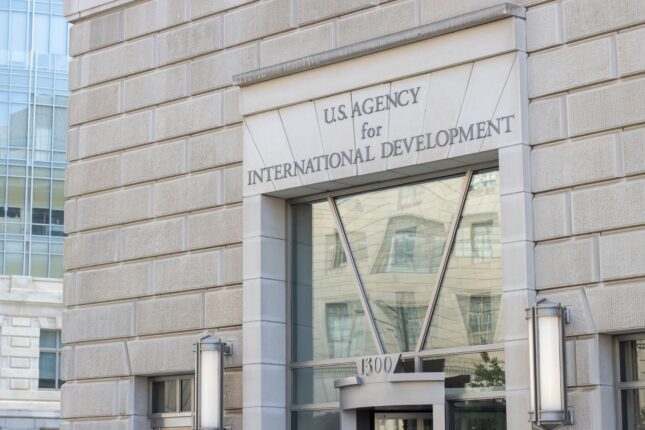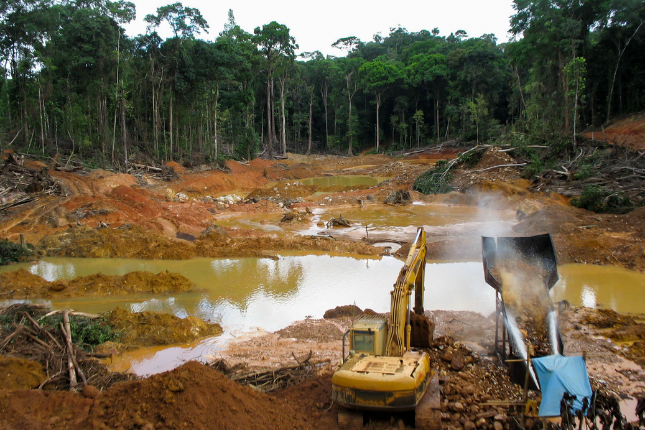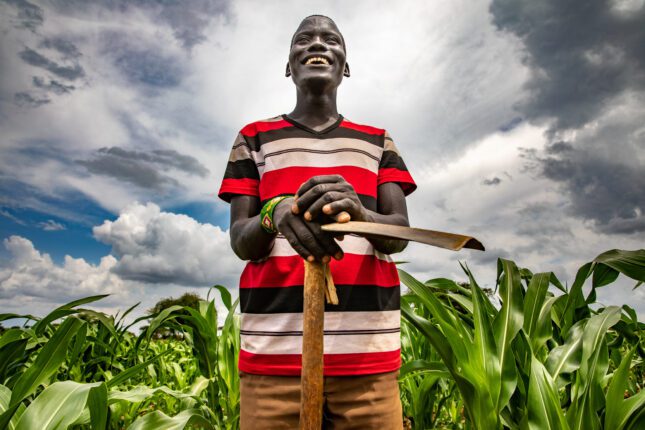-
Plotting the Future of U.S. Foreign Aid
›
When Secretary of State Marco Rubio formally declared the “era” of USAID over on March 28, 2025, it represented an extraordinary sea change for US foreign aid deployed over the past six decades.
Yet the world has changed dramatically since the U.S. Agency for International Development (USAID) was established by the Foreign Assistance Act of 1961 in the middle of the Cold War. So, there is every reason to thoughtfully consider what foreign aid should look like today as we navigate an era of Great Power Competition (GPC).
-
Environmental Peacebuilding: The Year in Review and the Year Ahead
›
As 2025 marches into its third month, the governance challenges that accompany rising demand for natural resources are not only on the front burner—they are proliferating—and becoming entangled with the drivers of conflict and cooperation.
The heated competition for resources has bubbled up in a proposed billion-dollar deal for Ukrainian minerals now making global headlines. The view that critical minerals like lithium, manganese, and others could become bargaining chips in potential peace talks demonstrates how central they’ve become to global competition—and to the economic and political future of countries around the world.
-
ECSP Weekly Watch | December 16 – 20
›
A window into what we’re reading at the Wilson Center’s Environmental Change and Security Program
Humanitarians Highlight the Climate-Conflict Nexus (The New Humanitarian)
Climate change’s disproportionate impacts on vulnerable populations exacerbate socioeconomic inequalities and conflict, particularly during natural disasters. This vexed connection has led humanitarians and peacebuilders increasingly to address climate and conflict challenges together in order to provide integrated relief, recovery, and aid.
-
ECSP Weekly Watch | December 9 – 13
›
A window into what we’re reading at the Wilson Center’s Environmental Change and Security Program
Mekong River Development Faces Public Outcry (Mongabay)
The Mekong River flows through China, Myanmar, Laos, Thailand, Cambodia, and Vietnam—and a new development on this waterway near the downstream Thailand-Laos border has triggered protests in Thailand. The Pak Beng hydropower development is a joint project of China Datang Overseas Investment and Thailand-based Gulf Energy Development which is estimated to generate 912 megawatts of power to be sold to Thailand’s state energy company.
-
ECSP Weekly Watch | December 2 – 6
›
A window into what we’re reading at the Wilson Center’s Environmental Change and Security Program
Famine Prevention Systems Prove Insufficient (Reuters)
The Integrated Food Security Phase Classification (or IPC) is a global partnership that monitors hunger levels. It is widely recognized for its five-phase classification system of food insecurity that ranges from “minimal” (Phase 1) to “famine” (Phase 5). While the IPC’s aim is to inform humanitarian organizations at an early stage of a crisis to allow them streamline the flow of aid, the worsening global hunger levels experienced this year have pointed to shortcomings in existing prevention systems.
-
Swathi Veeravalli on the Importance of Climate Security for US Strategic Interests
› In today’s episode of New Security Broadcast, ECSP Program Director Lauren Risi sits down with Swathi Veeravalli on her last day as the Director for Climate Security and Adaptation at the National Security Council (NSC) to discuss the new US Framework for Climate Resilience and Security, its significance for the future of US security and economic interests, and what success in building climate security looks like over the next decade.
In today’s episode of New Security Broadcast, ECSP Program Director Lauren Risi sits down with Swathi Veeravalli on her last day as the Director for Climate Security and Adaptation at the National Security Council (NSC) to discuss the new US Framework for Climate Resilience and Security, its significance for the future of US security and economic interests, and what success in building climate security looks like over the next decade. -
ECSP Weekly Watch | November 12 – 15
›
A window into what we’re reading at the Wilson Center’s Environmental Change and Security Program
Shell Wins Appeal to Overturn Landmark Emissions Ruling (Al Jazeera)
Three years ago, a court in the Netherlands ruled in favor of environmentalists and required energy giant Shell to drastically reduce its greenhouse gas (GHG) emissions. The decision would compel the company to cut the absolute carbon emissions it created in 2019 by 45% by the year 2030—including emissions caused by its products. This ruling was the first of its kind by requiring companies to adhere to the Paris Agreement, and it ignited further attempts by climate activists to take legal measures against other fossil fuel companies.
-
New Tool Offers Key Insights for Tackling Climate and Conflict Challenges
›
When the White House released the US Framework for Climate Resilience and Security in September 2024, it was an important opportunity to highlight the significant impacts of climate change on US national security, economic, and strategic interests. The Framework also emphasized the need for tailored approaches in fragile, conflict-affected, and vulnerable (FCV) contexts, particularly in managing and allocating resources, as well as ensuring that climate finance addresses conflict drivers.
Showing posts from category democracy and governance.





 In today’s episode of New Security Broadcast, ECSP Program Director Lauren Risi sits down with Swathi Veeravalli on her last day as the Director for Climate Security and Adaptation at the National Security Council (NSC) to discuss the new US Framework for Climate Resilience and Security, its significance for the future of US security and economic interests, and what success in building climate security looks like over the next decade.
In today’s episode of New Security Broadcast, ECSP Program Director Lauren Risi sits down with Swathi Veeravalli on her last day as the Director for Climate Security and Adaptation at the National Security Council (NSC) to discuss the new US Framework for Climate Resilience and Security, its significance for the future of US security and economic interests, and what success in building climate security looks like over the next decade.


